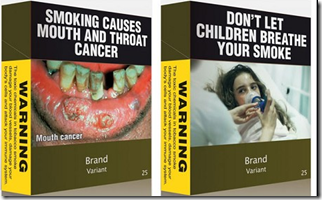Guest Post by Brian Darlington. His previous post: https://safetyrisk.net/my-thoughts-during-a-walk-in-the-forests-in-vienna/
 In one of my previous blogs , I wrote about how crazy it is of governments to try control peoples habits like smoking during the lock-downs related to the Corona virus by banning the sale of cigarettes. I stand by my comment that these rules are crazy and do not make sense. However, in this article I am appealing to smokers to take care of the environment. I have never been a smoker (apart from trying it once a couple of times) and do not have an issue about people smoking (even though not healthy). However, what I do stand against is the way many smokers (maybe I am generalizing) think that it is okay to discard of their cigarette ends on the ground.
In one of my previous blogs , I wrote about how crazy it is of governments to try control peoples habits like smoking during the lock-downs related to the Corona virus by banning the sale of cigarettes. I stand by my comment that these rules are crazy and do not make sense. However, in this article I am appealing to smokers to take care of the environment. I have never been a smoker (apart from trying it once a couple of times) and do not have an issue about people smoking (even though not healthy). However, what I do stand against is the way many smokers (maybe I am generalizing) think that it is okay to discard of their cigarette ends on the ground.
I live in the centre of Vienna and since the lock-down try and take a walk each morning and over weekends to get out of the apartment for a while and get some exercise. It is during these walks that I started taking notice of the amount of cigarette filters that are scattered all over the place. I always regarded Austria in general as well as Vienna as a clean country and city where people take pride in their environment. However, when looking closer, it is not always the case. It is clear that many smokers (obviously not all and I apologize to those that behave) are doing their best to either keep the street cleaners in a job or just do not care about our city and environment as others do.
Even though there are many street cleaners picking up waste and sweeping the pavements, it is evident that they are unable to cope with the amount of filters that are disposed of on the ground. You can stand anywhere on the sidewalks in Vienna and you will spot many cigarette filters lying around, in water trenches, under benches, in doorways, bus stops, to name a few. I even noticed the amount of cigarette filters on the ground any under benches at a children’s playground. Not a good example that adults set for their children on not littering.
I am also aware that this problem is not an isolated problem in Vienna and in Austria but a common problem in my cities and towns around the world.
So what is the wicked problem that we face?
Wicked problems are those that are impossible to solve indeed, by attempting to ‘fix’ them they are often amplified and made more wicked. Trying to ‘solve’ wicked problems creates amplified spin-offs and unseen trade-offs.
So trying to sort out the problem of stopping the pollution related to dropping of cigarette filters on the ground, (which in itself is a huge wicked problem) society is faced with a number of related wicked problems which include:
Ø Dropping cigarette filters on the ground has become a habit by many smokers and therefore do it unconsciously at times. However even when consciously throwing the filter onto the ground it is not considered as littering and is an accepted habit in the individual’s mind.
Ø Are these habits developed and accepted by persons belonging to the in-group where they do what others do and therefore regard the behaviour as accepted? This probably results in others not standing up against the problem and saying something, as not to be seen as being in the out-group. For example, a group of people standing together having a drink and the persons smoking drop and kill their cigarettes on the ground the non-smokers would probably say nothing, because of their need for belonging, being part of the in-group. This behaviour then becomes accepted and then they will more than likely not say anything against the problem elsewhere.
Ø Something is only defined as a habit when it becomes unconscious. If one is conscious of doing something then it is not a habit. The moment we operate in the unconscious the problem becomes ‘wicked’.
Ø The wicked problem is that smokers and many non-smokers unconsciously accept the problem as insignificant.
Maybe the rules implemented for not permitting smoking areas in restaurants and pubs has amplified to the wicked problem. The spin-off from the ruling is that people are required to step outside to enjoy their cigarette and satisfy their habit or addiction. Obviously, there are no ashtrays available outside to extinguish the cigarette and dispose of the filter. This highlights the issue that a zero tolerance approach to habits and unconscious addictions does not work.
This is similar to companies having a no smoking policy, however not permitting any compromise such as providing smoking areas. The spin-off is that people craving a cigarette will find somewhere to have a quick cigarette. The power of an addiction and a habit takes its dynamic out of the realm of rational control. Here is the critical question. Do we as leaders truly believe that we can control behaviours, habits or addictions by implementing rules and policing adherence of these rules? Remember as humans we are fallible we become distracted, make mistakes and act unconsciously. Do policy makers and those authority really consider the by-products and trade-offs they invoke in their responses to habits and addictions? For example, having an addiction and not being permitted to smoke takes your mind off your job and the possibility of an incident increases.
Do posters and policing make a difference?

In Vienna, posters are displayed in some of the bus stops requesting smokers to throw their filters in the provided disposal bins. Once again, it might change some people’s habits but it is evident that for many the posters make no difference. Believing that posters placed on notice boards will make a difference is far from the truth and reality. Sometimes the posters serve no more than some token excuse that the problem has been addressed.
The city of Vienna provides many possibilities for extinguishing and disposing of cigarette filters and display posters encouraging people to use them. However many ignore these, which is evident that by just providing the disposal bins and displaying posters does not solve the wicked problem. The habit of throwing the filter on the ground has been developed.
What needs to be done to address wicked problems?
As an insignificant individual focusing attention on an issue like the amount of cigarette filters dropped on the ground will make it extremely difficult to make a difference to society.
It is important to tackle any wicked problem through engagement with society and groups that can make a difference. All wicked problems can only be effectively tackled with a transdisciplinary approach.
Let’s look at the coronavirus wicked problem. Some people started wearing masks in public but were the minority and were looked at. I have no doubt that they felt part of the out-group, just as I did, however due to fear of catching the virus they continued wearing masks. The more publicity there was about the virus and explanations about the benefits of wearing the masks more people started wearing masks. Now when walking in the streets with a mask we feel part of the in-group all of a sudden. Those not wearing are starting to feel out of place and will probably eventually join the in-group. This is what we learn through social psychology.
In order to address any issue it is important to surface the issues, develop understanding of the challenges faced, and then develop initiatives through engagement of a broad range of disciplines to agree on suitable, workable strategies.
For example, I wonder how many people understand that cigarette filters are made of cellulose acetate, a form of plastic that is very slow to degrade in the environment. So smoking not only harms the person but also the environment. A typical cigarette filter can take anywhere from 18 months to 10 years to totally decompose, depending on conditions. Maybe surfacing this understanding and using it in positive messaging would be a step in tackling the problem.
In conclusion
So, we have much to think about. When he tackle a wicked problem involving habit and addictions, what can we do? How on earth can a zero approach possibly improve when a problem is so deep and unconsciously maintained? What effect can even a blog or article have on the weight of the problem and seemingly no solution? Why bother?
We ‘tackle’ wicked problems not to ‘solve’ them but to maybe make things better for just one. We certainly do not go the solutions route or the zero route, because this often makes things worse. So for whatever reason, if one person stops smoking or dropping cigarette butts then there has been good. We have at least held the problem rather than amplify it or give ammunition to its unconscious power.
No one knows why people change; we do not really know what leads to a ‘tipping point’. Except I do know that there have been changes in me many times in my life and I am grateful for those times and for people raising my awareness to issues and for moments of realisation. Maybe this blog might trigger a realisation in you.
Brian Darlington


Rob Long says
I’ve never been a smoker but do understand the nature of addictions, habits and heuristics. Good food for thought Brian, thanks. Brings into perspective just how difficult it is to invoke change. One thing for sure, humans are not behaviourist rats in a cage. Indeed, any change in heuristic or habit is a wicked problem.